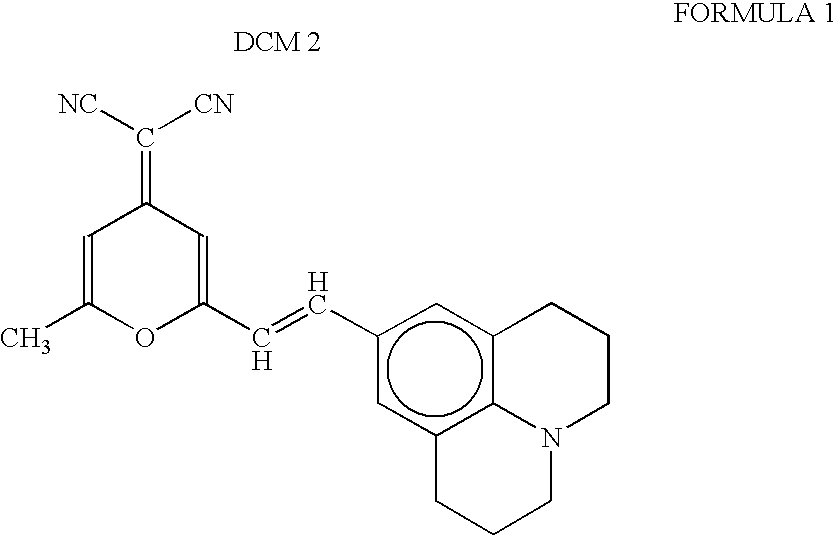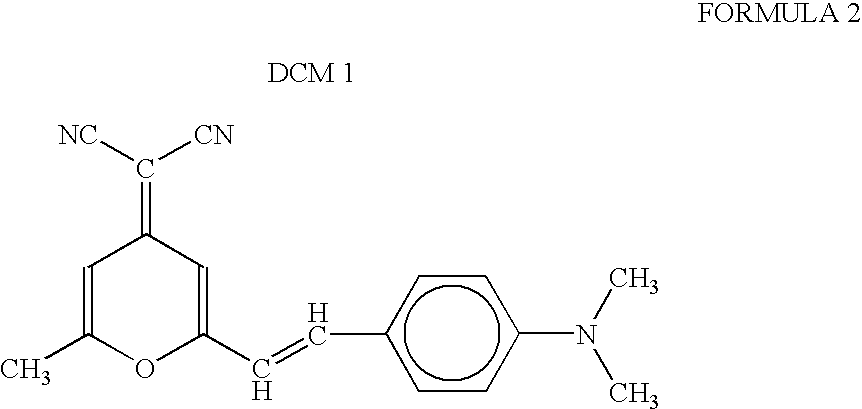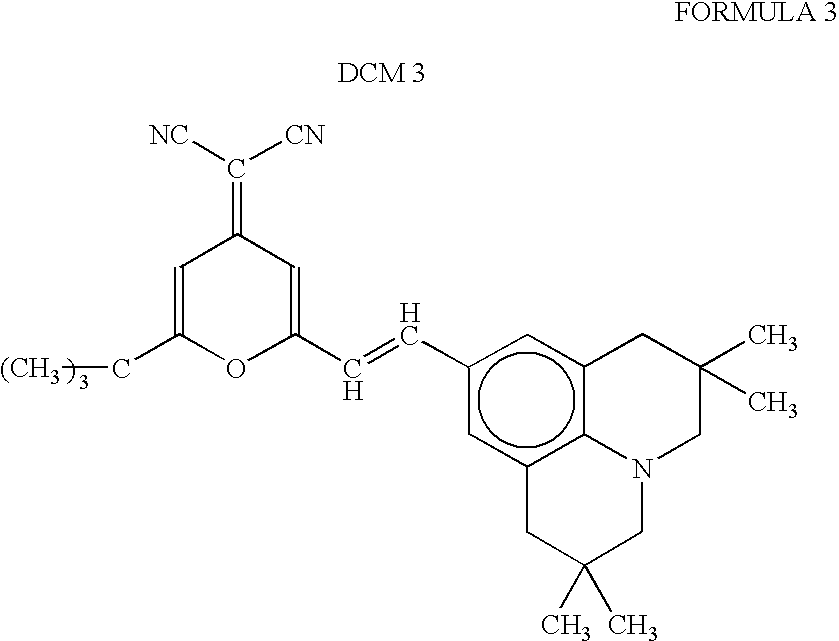Organic electro-luminescence display element, finder screen display device, finder and optical device
a display element and electroluminescence technology, applied in the direction of discharge tube luminescence screens, instruments, natural mineral layered products, etc., can solve the problems of reducing the efficiency of electron injection into the organic luminescent film, increasing the cost of peripheral devices, and reducing the efficiency of inorganic electroluminescence elements. , to achieve the effect of high transparency
- Summary
- Abstract
- Description
- Claims
- Application Information
AI Technical Summary
Benefits of technology
Problems solved by technology
Method used
Image
Examples
example 1
OF MANUFACTURING OF ORGANIC ELECTRO-LUMINESCENCE ELEMENT
[0320] A metal mask is set on a transparent glass substrate 100. This metal mask has a cut pattern corresponding to the configuration of the positive electrode and the power supply lead portion to be connected to the positive electrode. Sputtering of an ITO sintered target (containing In.sub.2O.sub.3 and 10 wt % of SnO.sub.2) is performed by a sputtering device so that an electrically conductive ITO film having a thickness of 50 nm is formed through the above metal mask on the substrate. Thereby, a positive electrode 101a, positive electrodes 101b on the left and right sides thereof and positive electrodes 101c on the left and right sides of the electrodes 101b as well as the lead portion 101' are formed.
[0321] Then, the substrate is moved to a vacuum vapor deposition device, and a metal mask provided with a square opening having an area covering the whole positive electrodes is placed on the ITO film. As the hole injection lay...
example 2
OF MANUFACTURING OF ORGANIC ELECTRO-LUMINESCENCE ELEMENT
[0331] A substrate 100' which is a commercially available ITO-coated glass, in which ITO is about 150 nm in thickness, is prepared. A mask for screen printing which bears a pattern for the positive electrode and the power supply lead portion to be connected to the positive electrode is disposed on the substrate 100'. Resist is applied by screen printing and then is cured. Thereafter, the ITO portion not covered with the resist is etched with acid, and then the resist is dissolved. The resist thus used is a positive resist AZ-RFPA manufactured by Clariant Corp.
[0332] The substrate thus processed is rinsed with neutral soap and organic solvent, and the surface is cleaned with ultraviolet rays and ozone (O.sub.3).
[0333] Through the above steps, a positive electrode 105a, positive electrodes 105b on the left and right sides thereof and positive electrodes 105c on the left and right sides of the electrodes 105b as well as a lead por...
example 3
OF MANUFACTURING OF ORGANIC ELECTRO-LUMINESCENCE ELEMENT
[0342] The substrate 100' which is a commercially available ITO-coated glass, in which ITO is about 150 nm in thickness, is prepared. A mask for screen printing which bears a pattern for the positive electrode and the power supply lead portion to be connected to the positive electrode is disposed on the substrate 100'. Resist which is the same as that in the example 2 is applied by screen printing and then is cured. Thereafter, the ITO portion not covered with the resist is etched with acid, and then the resist is dissolved.
[0343] The substrate thus processed is rinsed with neutral soap and organic solvent, and the surface is cleaned with ultraviolet rays and ozone (O.sub.3).
[0344] Through the above steps, the positive electrode 105a, positive electrodes 105b on the left and right sides thereof and positive electrodes 105c on the left and right sides of the electrodes 105b as well as the lead portion 105' are formed as shown in...
PUM
| Property | Measurement | Unit |
|---|---|---|
| thickness | aaaaa | aaaaa |
| light transmittance | aaaaa | aaaaa |
| width | aaaaa | aaaaa |
Abstract
Description
Claims
Application Information
 Login to View More
Login to View More - R&D
- Intellectual Property
- Life Sciences
- Materials
- Tech Scout
- Unparalleled Data Quality
- Higher Quality Content
- 60% Fewer Hallucinations
Browse by: Latest US Patents, China's latest patents, Technical Efficacy Thesaurus, Application Domain, Technology Topic, Popular Technical Reports.
© 2025 PatSnap. All rights reserved.Legal|Privacy policy|Modern Slavery Act Transparency Statement|Sitemap|About US| Contact US: help@patsnap.com



